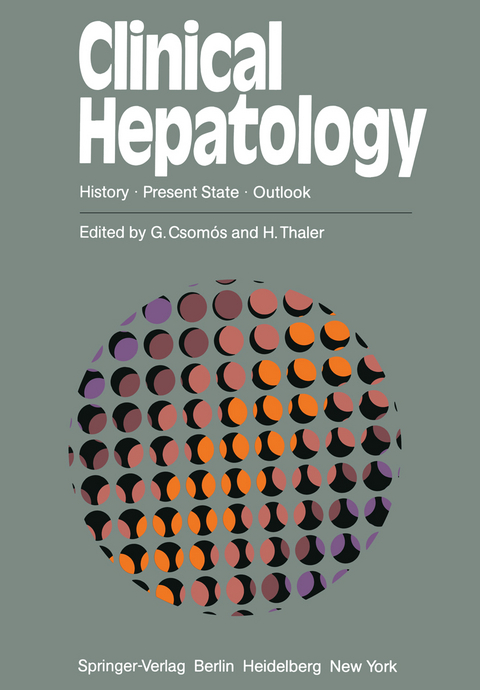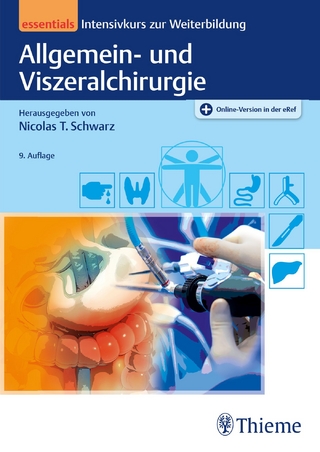
Clinical Hepatology
Springer Berlin (Verlag)
978-3-642-68750-1 (ISBN)
1. History of Hepatology.- 2. Differential Diagnosis of Liver Diseases by Enzyme Patterns. A Historical Review.- 3. Functional Dissection of the Diseased Liver.- 4. Hepatic Drug Disposition in Liver Disease: Consequences for Dosage Adjustments.- 5. Biliary Lipids and Gallstone Formation.- 6. Current Concepts on Bilirubin Metabolism and Gilbert's Syndrome.- 7. Protein Synthesis.- 8. The Position of Laparoscopy Among Methods Used in Differential Diagnosis of Chronic Liver Diseases.- 9. The Role of the Gallbladder and the Sphincter of Oddi in the Regulation of Enterohepatic Bile Acid Circulation and Biliary Lipid Secretion.- 10. Cultured Kupffer and Endothelial Cells from Human and Rat Livers - A New Means of Studying Viral Infections of the Liver.- 11. Liver Fibrosis: A Dynamic Process?.- 12. Liver Biopsy.- 13. Ultrastructural Pathology of the Human Liver.- 14. Immune Reactions in Liver Diseases.- 15. Viral Hepatitis - An Update.- 16. Vaccination Against Hepatitis B Virus: Past and Future Problems.- 17. Animal Models in Hepatitis Research.- 18. Present Status of Liver Transplantation.- 19. New Approaches to the Management of Portal Hypertension and Variceal Haemorrhage.- 20. Sclerotherapy of Oesophageal Varices by Means of Fibreendoscopy.- 21. Hepatic Encephalopathy.- 22. Cholestasis: A Problem.- 23. Alcoholic Hepatitis.- 24. Endotoxins and Alcoholic Hepatitis.- 25. Childhood Liver Diseases.- 26. Hepatocellular Carcinoma.- 27. Liver Damage Caused by Environmental Factors.- 28. Clinical Research and Statistics from an Ethical Point of View.- 29. The Development of Methods for Clinical Trials.- 30. Hepatology 2000.
| Erscheint lt. Verlag | 7.12.2011 |
|---|---|
| Vorwort | H. Popper |
| Zusatzinfo | X, 436 p. |
| Verlagsort | Berlin |
| Sprache | englisch |
| Maße | 170 x 244 mm |
| Gewicht | 773 g |
| Themenwelt | Medizinische Fachgebiete ► Chirurgie ► Viszeralchirurgie |
| Medizinische Fachgebiete ► Innere Medizin ► Gastroenterologie | |
| Medizinische Fachgebiete ► Innere Medizin ► Hepatologie | |
| Schlagworte | Cancer • hepatology • Lebererkrankung • Liver • liver disease |
| ISBN-10 | 3-642-68750-4 / 3642687504 |
| ISBN-13 | 978-3-642-68750-1 / 9783642687501 |
| Zustand | Neuware |
| Haben Sie eine Frage zum Produkt? |
aus dem Bereich


